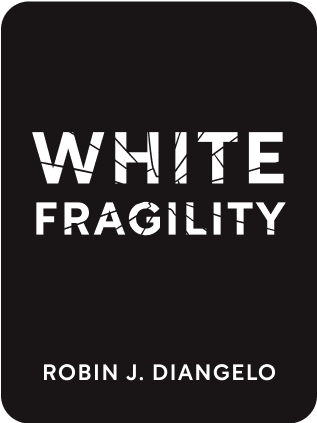

This article is an excerpt from the Shortform summary of "White Fragility" by Robin J. DiAngelo. Shortform has the world's best summaries of books you should be reading.
Like this article? Sign up for a free trial here .
Did you know race is a social construct? How does this work and how do we know that race is a social construct?
Race is a social construct because there is no biological justification for differentiating between races. So, how is race a social construct? The physical differences do not, on their own, create any meaningful differences between people, but we’ve created difference based on race in our society.
Read on to better understand why race is a social construct.
Race Is a Social Construct
When we talk about race, however, we must be careful to say that race is a social construct, not a biological reality. How is race a social construct? While there are certain physical differences between groups of people such as skin color, hair texture, or eye shape, these are superficial differences that owe their existence to where one’s ancestors lived hundreds of thousands of years ago. But these minor physical differences in and of themselves have no bearing on traits that matter to individual success, such as intelligence. So, race is a social construct.
Modern notions of race really started during the age of European colonization of the Americas, which began in the 16th century. Europeans (mainly through a combination of deliberate extermination and disease) killed millions of indigenous peoples in North and South America, dismantled their existing political and economic systems, and founded colonies whose main purpose was to extract raw materials for export on the world market.
After the indigenous populations died out, Europeans began to kidnap black Africans and transport them across the Atlantic Ocean to perform slave labor in the New World. Ideas of race arose from these historical traditions. Notions of racial superiority (for white people) and inferiority (for non-white peoples, chiefly those of African descent) emerged to justify the brutal system of exploitation. If black people were morally and intellectually inferior, then it was not immoral to enslave and kill them. Thus, race is a social construct.
It is important to remember that the fact that race is a social construct preceded racism—indeed, it was essential to it. Our notions of race are inextricably linked to centuries’ worth of ideas and practices about who should and should not wield power in society.
Colorblindness: Denying Race, Denying Racism
White people are socially conditioned from birth to accept and support white supremacy. Although overt expressions of racism on the part of white people have been taboo since the Civil Rights Era, white society has failed to recognize the pervasiveness of institutional racism in American life. One common manifestation of this is the widespread claim by white people that they are “colorblind” or “don’t see race.”
Colorblindness enables white Americans to delude themselves into believing that they can avoid problems of race by simply pretending that they didn’t exist. But race profoundly shapes the experiences, views, and expectations of everyone in society. It is simply impossible for a white person raised in a society organized on the basis of institutional racism to not “see” race.
And even if it were possible, colorblindness would not be a desirable goal, because the experiences of people of color are inevitably defined by race. To deny the existence of race or to minimize its importance is to deny the existence of racism itself—and thus give implicit assent to it. A white person who professes to not see race unsurprisingly becomes defensive and agitated when the realities of institutional racism—and their responsibility for it as a beneficiary of it—are explained to them.
Race Talk
Because they are conditioned by a structurally racist society, white people act in myriad ways to bolster institutional racism. One example is the way that white people speak to each other about racial topics—often without ever explicitly mentioning race at all. This phenomenon is known as “race talk.”
White people will engage in race talk on the topic of black crime by expressing concern about the “character” of a neighborhood, the test scores at a local school, or declining property values. Race does not have to be mentioned at all. It is assumed by all white participants in such a conversation that these negative attributes like crime are definitionally tied to blackness. This is despite the fact that studies of census data and crime statistics do not support this belief, certainly when controlling for other factors like poverty (although it does not stop police from detaining and imprisoning men of color at far higher levels than their white counterparts). Such conversations serve to reinforce solidarity between white people and solidify white attitudes about the rightful ordering of the racial hierarchy.
These attitudes, in turn, guide white actions. Thus, in a phenomenon known as “white flight,” white Americans will leave neighborhoods that are becoming more diverse (one study showed that even a tiny 7 percent African-American population in a neighborhood can trigger white flight), citing the desire to send their children to “good” schools. Although it’s not spoken, the assumption is that a “good” school is one attended by few minorities.
Racist Jokes and White Solidarity
In 2007, sociologists Leslie Picca and Joe Feagin studied the ways in which white people expressed ideas and attitudes about race to one another. They found that innate beliefs in white supremacy were strong, even among supposedly liberal and progressive white millennials. They found that white millennials in college settings frequently told racist jokes, all while persisting in the belief that they were more open-minded and tolerant when it came to race.
Picca and Feagin argued that the telling of such jokes amounted to a performative ritual of white solidarity that strongly reinforced white supremacist beliefs and actions.

———End of Preview———
Like what you just read? Read the rest of the world's best summary of Robin J. DiAngelo's "White Fragility" at Shortform .
Here's what you'll find in our full White Fragility summary :
- Why white people become defensive when confronted with the idea of racism
- How today's racial hiearchy began in roots centuries ago
- How we as society can gradually overcome our deep racial divides






